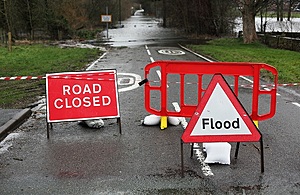Automatic early release of terrorists ends
- Emergency legislation has become law in just 15 days
- Around 50 jailed extremists will see their automatic release blocked
- Terrorist offenders must serve at least two-thirds of their sentence behind bars before being considered by the Parole Board
The automatic early release of terrorist offenders will end from today (26 February) as emergency legislation to ensure the public is protected receives Royal Assent.
The urgent measures – introduced by Justice Secretary Robert Buckland QC MP just 15 days ago, following the Streatham attack – received substantial support across Parliament, making sure the new law is on the statute book as quickly as possible.
The move will mean terrorist offenders cannot be released before the end of their sentence without a risk assessment by the Parole Board.
It will end the current automatic half-way release for terrorist offenders who receive standard determinate sentences, forcing them to spend a minimum of two-thirds of their term behind bars.
It will apply to offenders sentenced for crimes such as training for terrorism, membership of a proscribed organisation, and the dissemination of terrorist publications.
It will mean around 50 terrorist prisoners already serving sentences will see their automatic early release blocked.
Justice Secretary and Lord Chancellor Robert Buckland said:
No terrorist should be released early only to kill and maim on our streets. Protecting the public is Government’s first duty and our message is clear – enough is enough.
From today, terrorist offenders will only be released before the end of their sentence if the independent Parole Board is satisfied they no longer pose a threat, and they will face the strictest possible conditions and monitoring upon release.
In addition all terrorist offenders will be subject to robust safeguards upon release, which could include notification requirements, restrictions on travel and communications, and imposed curfews.
The new legislation follows a package of measures announced following the horrific attack at Fishmonger’s Hall in November, which included:
- Tougher sentences for the most serious terrorist offenders, keeping terrorists locked up for longer and ending early release.
- Major overhaul of prisons and probation includes tougher monitoring conditions and doubling of counter-terrorism probation officers.
- Counter-Terrorism Police funding to be increased by £90 million for 2020 to 2021.
- Review of support for victims of terrorism, including immediate £500,000 to the Victims of Terrorism Unit.
In addition, the Government is reviewing the current maximum penalties and sentencing framework for terrorist offences, on the underlying principle that terrorist offenders should no longer be released until the Parole Board is satisfied that they are no longer a risk to the public.
